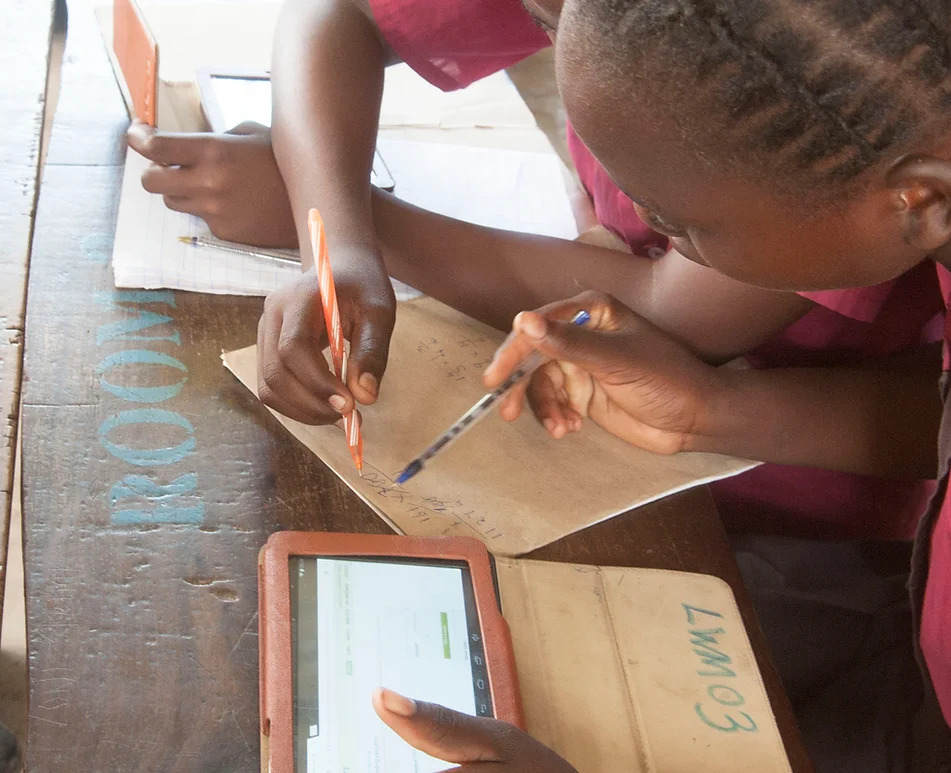Digital Education
Target – 4.4: By 2030, substantially increase the number of youth and adults who have relevant skills, including technical and vocational skills, for employment, decent jobs and entrepreneurship.
Life-long learning is pivotal to the Sustainable Development Goals as it supports the shift to sustainable ad resilient practices across key sectors, professions, and groups.
SPIDER focus on digitalisation, collaboration, and a systems approach that enables a boot-strapping that allows building on collective strengths. Digitalisation of educational resources allows endless distribution of resources that would be impossible in physical copies. Developing localized and contextualised educational materials ensures the inclusion of groups that have been marginalized due to gender, age, language, and geographic marginalisation.
Training teachers in ICT and integrating digital tools across all levels of education is an important step towards future proofing society as broad sectors of society become proficient users of ICT and can meet the increased demands of a diversified and specialised labour force.
SPIDER has supported ICT infrastructure at universities and provided teaching material, curricula, and teacher training in using ICT in core subjects to build an education system that is resilient to future pandemics. Education projects in refugee camps and among indigenous populations strengthen not only education but also inclusion and equality within and across nations.
SPIDER’s long committment to digital education
The educational sector has been a pillar of SPIDER’s existence. Set up as a center to academically explore the impact of digitalisation on the global development goals, our support to SDG4 has been a backbone of our organisation for nearly 20 years.
Digitalisation in the education sector is not about replacing teachers with tablets, but rather to ensure continued teacher training, positive educational sector reform, equipment of students and teachers to encourage pupils to seek accurate information and to continue to be inquisitive and open minded. To set the foundation for respect for Human Rights and inclusive societies where everyone has the right to education.
Our projects stimulate social entrepreneurship, develop marketing skills, and give minority communities power over their curricula.
SPIDER looks forward to working with more funders who prioritise good education to generate international programmes that dismantle inequity and promote skills, economic growth and healthy communities.
Indigenous language learning content
SPIDER will improve primary education for children in rural Cambodia by making knowledge accessible in their own native languages. Our local partnership lead by Open Development Cambodia will produce digital educational resources such as videos and podcasts, and capacity train teachers to use them.

Coding in Khmer for rural youth
Knowing how to code is an important skill to have today. With recent improvements of the infrastructure in rural Cambodia, SPIDER found an opportunity to implement ICT education programmes in the rural areas. Our partner Kawsang will turn the localised Khmer version of code.org into lesson plans, while training teachers to apply them. This bridges the urban-rural knowledge gap.

DigiLearn
In order enable more children to pass primary school in Zambia, SPIDER coordinates our local partner Project Luangwa in supplying the project school Uyoba Primary with tablets containing the entire Zambian curriculum. Teachers will be trained in using technology with the purpose of making learning more flexible and exciting, while results are closely monitored.

Explore SPIDER’s work for the Sustainable Development Goals
F.A.Q.
Digital education has boomed since the COVID-19 pandemic made remote learning a way for children to keep learning when schools closed.
What is digital learning?
Digital learning involves the use of electronic devices and technologies to deliver educational content, in formal educational settings like schools and universities or in informal settings.
What role can ICTs play in addressing the global learning crisis?
ICTs offer scalable solutions for personalized learning, remote education, and digital resources, helping address the learning crisis and advance SDG 4 objectives.
What are the advantages of digital learning?
Some advantages to digital learning are flexibility in scheduling, accessibility from anywhere, interactive multimedia content, personalized learning paths, and the ability to accommodate diverse learning styles.
Can teachers be replaced by digital learning content?
No – to put it shortly. Teachers have an important role in the learning environment and cannot be completely replaced by a digital tool. ICTs can complement the learning process and give access to different types of learning materials, including interactive ones for testing and self-studies.
Do teachers need support to use digital learning tools?
Training and support for teachers is key for a successful implementation of digital learning initiatives. Experienced teachers are already familiar with how to teach their subject and can incorporate a new tool if given the time to become familiar with it.
